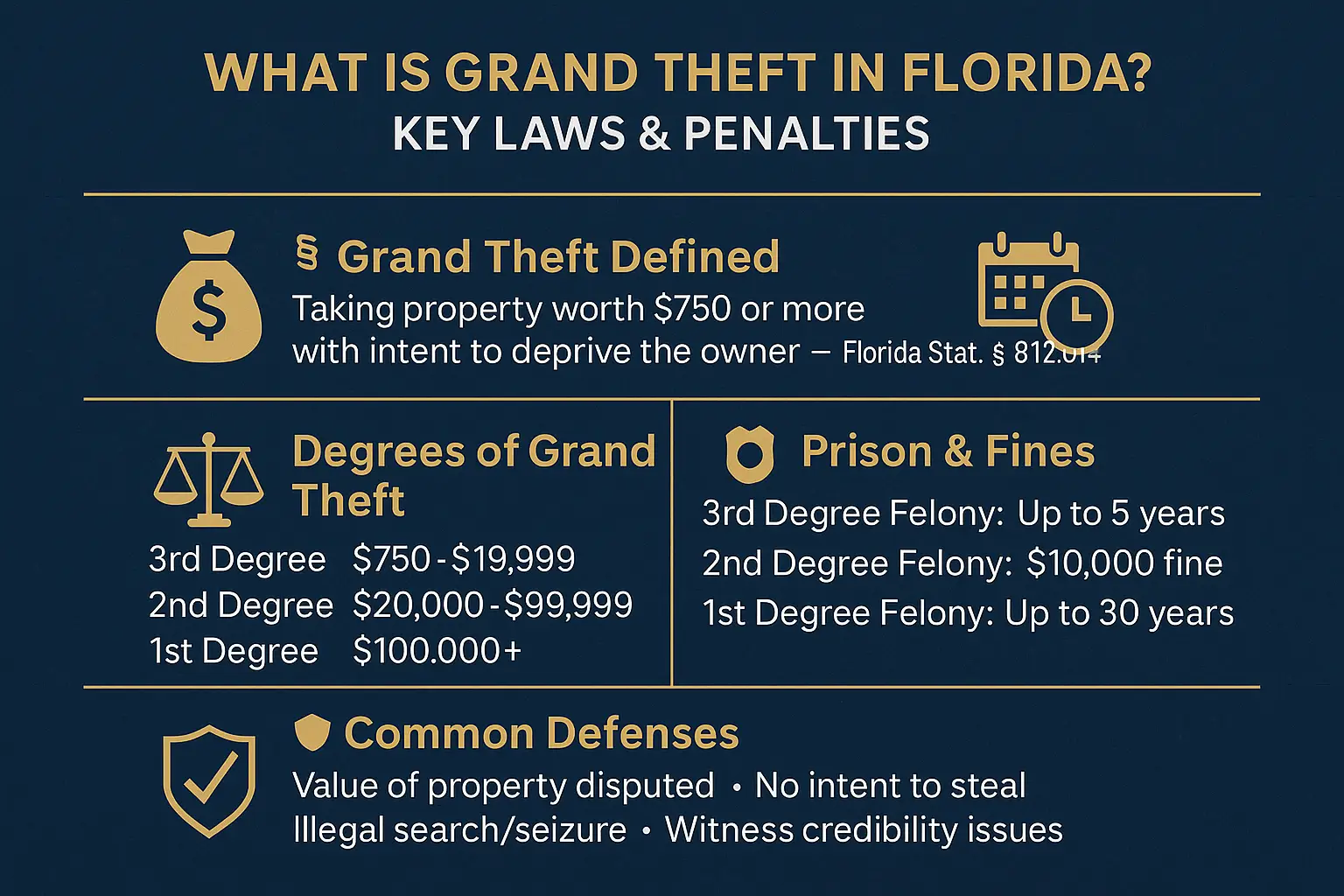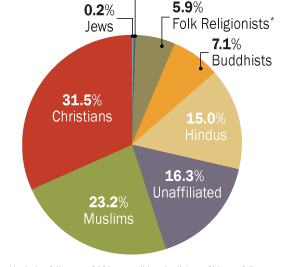
Grand Theft: Definition, Meaning, and Legal Implications

In the realm of criminal law, one of the most serious charges that an individual can face is grand theft. This offense typically involves the unlawful taking of property or goods valued above a certain monetary threshold. Understanding grand theft is crucial for anyone seeking to navigate the complex legal landscape it creates, as the implications of the crime can lead to severe penalties and long-lasting consequences. This article will delve into the definitions, legal implications, and significant aspects of grand theft, providing clarity and insight into its nature and repercussions.
The term grand theft not only reflects the value of the property involved but also categorizes the crime as a felony, distinguishing it from lesser theft offenses. In various jurisdictions, the value that separates grand theft from petty theft fluctuates, underscoring why understanding the specific laws in your locale is paramount. This comprehensive guide aims to educate readers about grand theft by exploring its definition, legal differences, examples, consequences, and possible defense strategies.
What is Grand Theft?
Grand theft refers to the act of illegally taking someone else's property with the intent to permanently deprive the owner of it, where the value of the property exceeds a legally defined amount, typically ranging from $500 to $1,000, depending on the jurisdiction. This crime is categorized as a felony due to its seriousness and the potential harm it inflicts on victims. The distinction between grand theft and other forms of theft often hinges on the monetary value of the stolen property.
Legal Definition of Grand Theft
Difference Between Grand Theft and Petty Theft
The primary difference between grand theft and petty theft lies in the value of the stolen property. Petty theft typically involves items valued below the designated threshold, which might be $500 in some regions, thus classifying it as a misdemeanor. Grand theft, being a felony, carries much harsher legal repercussions. Understanding this distinction is essential for defendants facing theft charges, as the penalties associated with grand theft can significantly impact one’s future.
Examples of Grand Theft
There are numerous examples of grand theft that illustrate the nature of this crime. Common scenarios include the theft of vehicles, electronics, jewelry, or significant amounts of cash. For instance, if an individual steals a car worth $15,000, this would undoubtedly be classified as grand theft. Similarly, stealing high-end electronics valued at $1,500 or more fits this definition. Each of these instances represents the unlawful taking of property that exceeds the monetary limits set forth in various legal statutes.
Legal Consequences of Grand Theft
The legal consequences of grand theft are substantial and vary based on the jurisdiction, the value of the stolen property, and the offender’s prior criminal record. Convictions can lead to significant fines, imprisonment, and restitution to the victim. Often, the penalties escalate with the value of the stolen item; higher values may lead to longer prison sentences and larger fines. The consequences of grand theft are not merely legal but can also have profound effects on one’s personal and professional life.
Criminal Charges Associated with Grand Theft
When charged with grand theft, an accused individual may face a variety of criminal charges. Typically, the most serious of these charges is felony theft, but ancillary charges can also arise, such as conspiracy, possession of stolen property, or armed robbery if a weapon was involved in the theft. Each of these charges carries its own set of consequences, further complicating defense and potential penalties.
Penalties for Grand Theft Convictions
Penalties for a grand theft conviction can be severe, often resulting in lengthy prison terms and hefty fines. Typically, a felony conviction can lead to a prison sentence ranging from one year to several years, depending on the specific state’s guidelines. In addition, offenders may be required to pay restitution to the victims and may face civil penalties. The lasting impact of a grand theft conviction may include difficulty securing future employment, housing, and loss of certain civil rights.
Defense Strategies in Grand Theft Cases
Individuals facing grand theft charges have several defense strategies available, which can vary based on specific circumstances. Common defenses include lack of intent, mistaken identity, duress, or claiming that the property was legally obtained. Each strategy requires a solid foundation and evidence to support the defense's claims. Engaging experienced legal representation can significantly alter the outcome of a case involving grand theft.
Conclusion
Understanding grand theft is crucial for those facing allegations of theft or those seeking to comprehend the legal ramifications of such charges. With substantial differences between grand theft and petty theft, as well as the severe consequences that come with felony charges, being informed becomes essential. Whether one is a defendant, victim, or simply a concerned individual, clarity regarding grand theft and the accompanying laws is vital.
Further Resources on Grand Theft Laws
For more information about grand theft laws, individuals can benefit from reviewing state-specific legal resources, consulting with criminal defense attorneys, and exploring academic texts on criminal law. Understanding the nuances behind grand theft will better prepare individuals for any legal encounters they might face.
Did you find this article helpful? Grand Theft: Definition, Meaning, and Legal Implications See more here Education.
Leave a Reply






Related posts